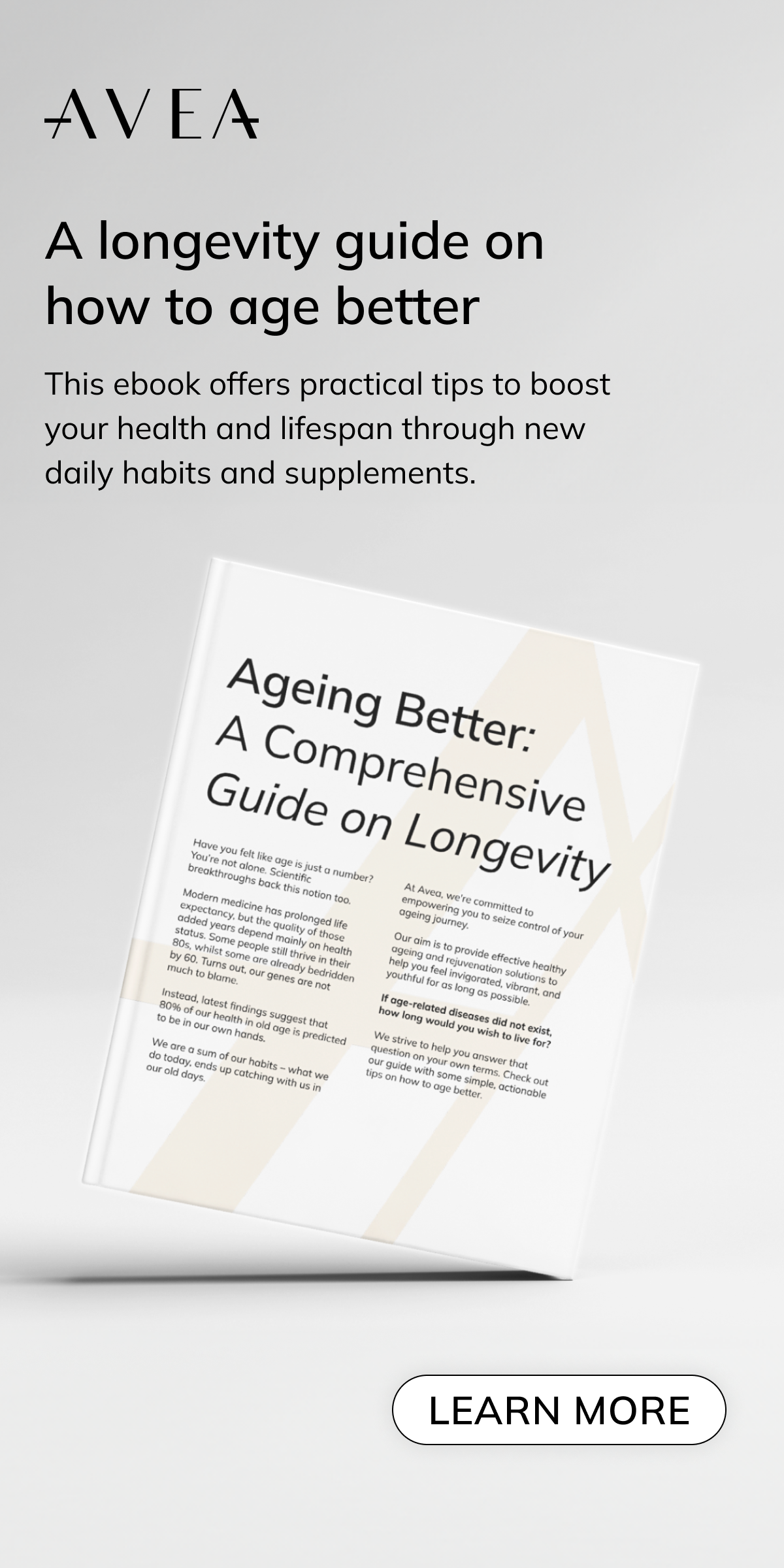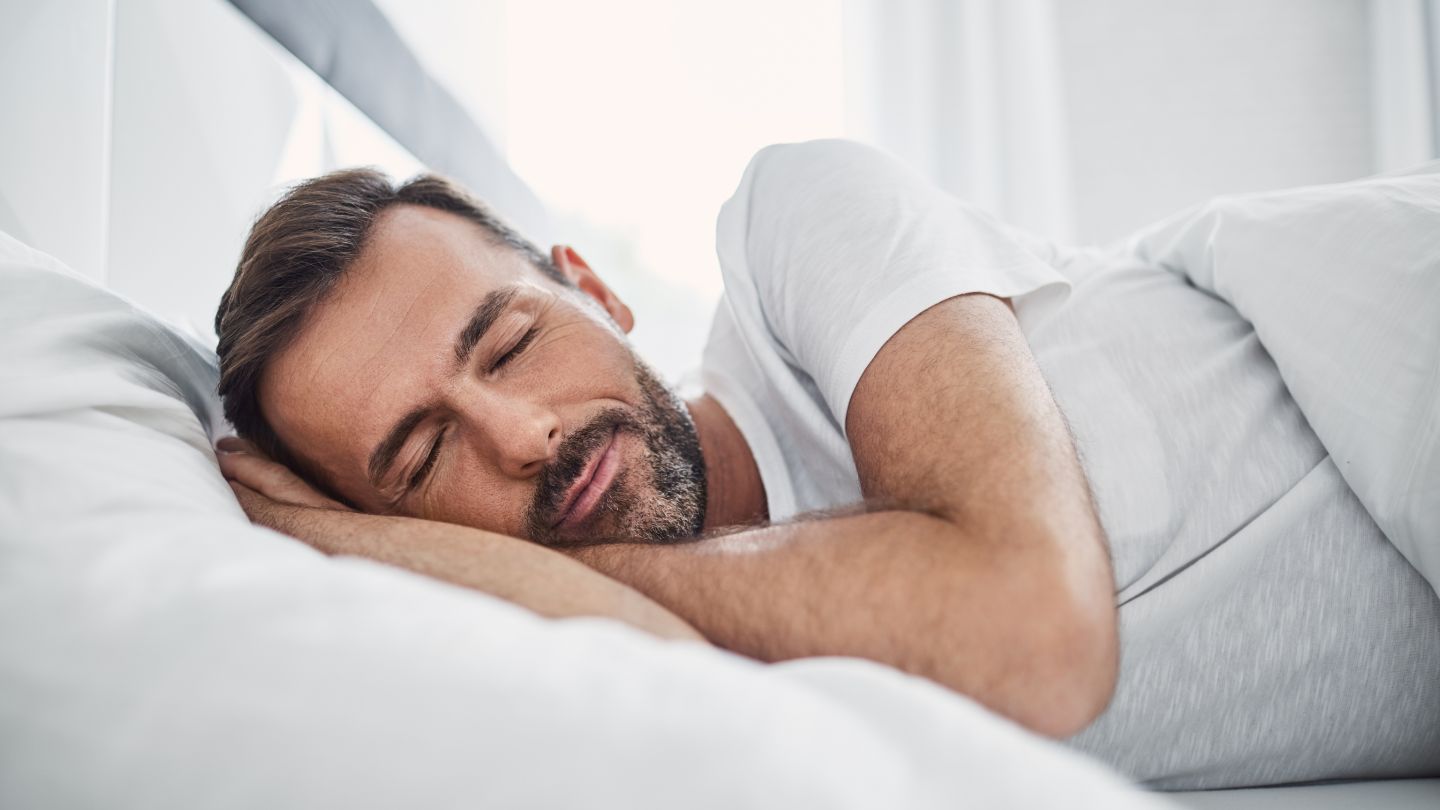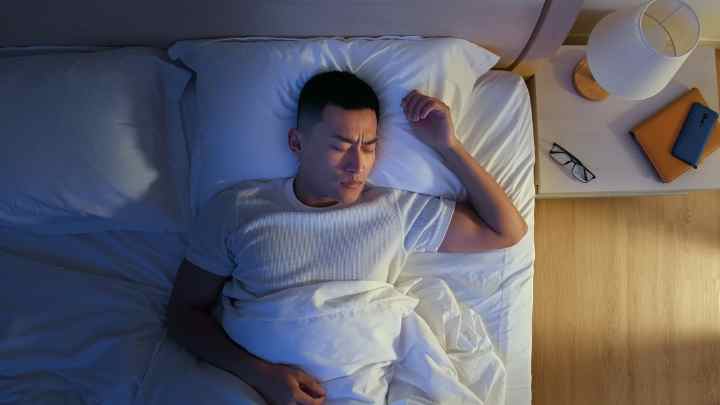Good sleep is more than just a break from the daily grind—it’s the most vital ingredient you’ll need for a healthier and happier life.
Many of us know the importance of sleep. We need it for memory, mood regulation, and maintaining overall physical health.
Yet, according to a study with participants from 12 countries, around 81% of respondents experience one or more symptoms indicating poor sleep quality.
Sleeping well can be a game-changer. Quality sleep has the power to rejuvenate, to heal, and to transform. It promises not just rest, but life itself.

This article at Avea can be your guide to transforming your sleep from a mere necessity to a powerful tool for wellness.
We’re diving into simple yet effective ways to help you sleep better, so you wake up feeling refreshed and ready to seize the day.
Here are some effective ways to train your brain to sleep better. Bonus tips are included in the end, so dive right in!
In this article
1. Sleep hygiene matters
Think of sleep hygiene as training your brain, much like you would train a pet. Just as a dog learns to sit or stay through consistent routines, your brain learns when it’s time to power down for sleep.
Good sleep hygiene is about crafting habits and rituals that signal to your mind it’s time to wind down, just like Pavlov’s dogs learned to associate a bell with mealtime.
This concept isn’t just a nice idea; it’s backed by science. Research shows that solid sleep hygiene practices can transform your nights from restless to rejuvenating.
Poor habits can leave you staring at the ceiling, while good ones can be the ticket to waking up refreshed and full of energy the next day.
You’ve probably heard of Bryan Johnson, tech millionaire spending millions to design Project Blueprint– a quest to reverse his biological age. Here’s our summary of his Blueprint.
As such, one of his very main focus is his sleep. His sleep performance currently ranks in the 99.4th percentile of WHOOP (health tracker) users.
From the moment I set foot inside my house to when I tuck into bed, my evening routine is built around getting optimal sleep. The difference between hope and despair is a good night’s sleep.’’
–Bryan Johnson
2. Use light to sleep better
In our technology-driven world, the natural rhythm of day and night often gets lost amidst the glow of screens and the endless scroll of social media.
Laptops, smartphones, and other gadgets emit a type of light that can deeply disturb your sleep-wake cycle, keeping your brain wired long after the sun has set.
This artificial interference can lead to disrupted sleep patterns, making it challenging to get the restful night’s sleep your body and mind crave.
Here are some strategies to harness the power of light and recalibrate your sleep cycle:
Morning light exposure:
Start your day with sunlight exposure. If it’s sunny, even 5 minutes outside can make a difference. Overcast days might require 10 minutes, and heavy cloud cover, about 30 minutes. This exposure helps regulate your internal clock. So, go for a walk every morning or simply enjoy your coffee outside.
Managing evening light:
Reduce your exposure to the blue light from screens in the evening. The blue light can deceive your brain into thinking it’s still daytime, delaying the release of sleep-inducing melatonin. Using blue light filters on your devices and avoiding screens at least an hour before bed can help.
Creating the right nighttime environment:
As bedtime approaches, prepare your bedroom to be a haven for sleep. Mimic the natural decrease in light by using dim or warm-hued lights in your living spaces. Use blackout curtains or sleeping masks if needed. This environment signals your body that it’s time to wind down, helping the transition into sleep.
3. Eat better to sleep better
When and what you eat can influence how you sleep at night. Our diets, often unbalanced, can lack the key elements needed to encourage restful sleep or simply contain ingredients which basically damage our sleep quality.
Nutrition is not only important for our energy levels during the day but also for quality sleep at night.
science.
You can follow certain habits to ensure that your nutrition helps you sleep well.
Timing of meals:
Eat your last meal 2-3 hours before bedtime. This will help prevent sleep disruptions. Late meals may cause discomfort and indigestion, impacting your sleep quality.
Sleep-promoting foods:
Incorporate foods into your diet that support relaxation and sleep. Foods rich in magnesium, such as almonds and spinach, and those containing tryptophan, like turkey and oats, can naturally prepare your body for sleep.
Dinner choices:
Opt for lighter meals in the evening. Avoid heavy, rich, or fatty foods that might cause indigestion or heartburn, but also ensure you’re not going to bed hungry.
Hydration:
Adequate hydration is important, but balancing fluid intake in the evening can help minimise nighttime awakenings. Try to consume most of your fluid within the first 10 hours of waking up.
Caffeine awareness:
Be mindful of caffeine intake, especially in the latter part of the day. Avoid caffeine for at least 4 to 6 hours before bedtime to ensure it doesn’t disrupt your sleep.
Supplements:
Addressing nutrient gaps with supplements can significantly enhance sleep quality.
Avea Essentials, which includes Omega-3, Vitamin D3 & K2, Magnesium, and Zinc, is designed to support overall health and, by extension, improve sleep.
These nutrients play critical roles in regulating sleep patterns and ensuring a more restful night.


Research suggests a deficiency in Omega-3, Magnesium, and Vitamin D have been linked to an increased risk of sleep disorders, as well as sleep difficulties, shorter sleep duration, and nocturnal awakenings in both children and adults.
The Essentials ensures your body has the daily nutrients required for deep, rejuvenating sleep, addressing common dietary deficiencies.
4. Move to sleep better
Lack of regular exercise can directly impact sleep quality, as physical inactivity often correlates with a slower metabolism and less efficient body functions, including the regulation of sleep hormones.
Engaging in regular exercise will improve your body functions and boost a better-regulated sleep cycle, leading to deeper and more restorative sleep.
Here’s how you can incorporate exercise more effectively in your routines:
Timing is key:
Aim for regular physical activity, but be mindful of the timing. Exercising too close to bedtime can be stimulating. Ideally, finish any vigorous workouts at least three hours before you plan to sleep.
Consistent, moderate exercise:
Consistency matters. Daily moderate exercise, such as a brisk walk or a cycle ride, is more beneficial than occasional intense workouts.

Mind-body activities in the evening:
Practices like yoga or tai chi in the evening can be particularly beneficial. They help to relax both the mind and body, preparing you for restful sleep.
Physical activity throughout the day:
Incorporate light physical activities throughout your day. Frequent light movement, like stretching or walking, can have cumulative benefits for your sleep.
Listen to your body:
Pay attention to how different types and times of exercise affect your sleep. Some may find an evening yoga session ideal, while others might benefit from a morning jog. You have to figure out what works best for you.
Be mindful when taking naps:
Managing nap length to about 30 minutes and avoid napping late in the day to ensure they don’t interfere with your regular sleep schedule.
5. Learn to relax to sleep better
You need to relax so that your mind and body can shut down. While physical activity helps to expend energy and regulate your body, relaxation techniques focus on calming your mind and easing into a state of restfulness.
The connection between relaxation and sleep is rooted in your body’s response to stress. Stress activates your body’s sympathetic nervous system, releasing hormones like cortisol, which can keep you alert and awake.
Relaxation techniques, on the other hand, activate your parasympathetic nervous system, often referred to as the “rest and digest” system.
This shift helps lower cortisol levels, reduce heart rate, and promote a state of calmness, all of which are conducive to falling asleep and maintaining deep sleep.
Here’s a few ways to help you activate your parasympathetic nervous system.
Reduction of stress hormones:
Practices like deep breathing and guided relaxation have been shown to decrease the production of stress hormones. Lower levels of these hormones, especially in the evening, are crucial for initiating your body’s natural sleep processes.
Brainwave activity:
Relaxation techniques can also influence brainwave patterns. Activities like meditation and deep relaxation can encourage the production of alpha and theta waves, associated with the early stages of sleep. This can ease the transition from wakefulness to sleep.
Emotional regulation:
Engaging in relaxation practices can also help manage emotions, particularly anxiety and rumination, which are known to interfere with sleep. By creating a mental state of peace and contentment, these techniques make it easier to fall asleep and improve sleep quality.
Physical relaxation:
Techniques like progressive muscle relaxation directly impact the body by relieving physical tension. This not only improves comfort in bed but also signals to the brain that it’s time to rest, enhancing the body’s readiness for sleep.
Dealing with wakefulness:
If you find yourself unable to sleep, try getting up and engaging in a mundane or boring activity until you feel sleepy again.
Pre-bed relaxation apps:
Consider using relaxation or meditation apps as part of your pre-sleep routine. Remember to use blue light blockers.
Nose breathing practice:
Encourage nose breathing during sleep. For those who struggle with this, mouth taping is a technique that can be explored (only if it’s safe to do so).
Learn more about the negative impacts of mouth breathing.
6. Bonus tips because you deserve it
Keep a sleep diary:
Tracking your sleep patterns through a sleep diary can be incredibly insightful. It helps identify what practices are positively or negatively affecting your sleep, allowing for more targeted improvements.
Talk with a doctor:
If you’re experiencing persistent sleep issues, it’s important to consult a healthcare professional. They can offer personalised advice and address any underlying health concerns that might be impacting your sleep.
Reserve your bed for sleep and sex only:
Strengthen the mental association between your bed and restfulness. Limit bed activities strictly to sleep and intimacy, which can significantly improve your sleep quality.
Get at least seven hours of sleep:
Aim for a minimum of seven hours of sleep each night. This duration is commonly recommended for most adults to achieve restorative sleep and maintain overall health.
Invest in a better mattress and bedding:
Your mattress and bedding play a critical role in your comfort and support during sleep. Investing in a high-quality mattress and comfortable bedding can make a significant difference in achieving a good night’s rest.
Create a sleep-positive mindset:
Last but not least, start getting excited about sleeping.
The mental approach to sleep can be just as important as the physical environment and routines. Cultivate a positive attitude towards sleep. Instead of seeing it as a challenge or a task, consider it a valuable and enjoyable part of your day.
This shift in mindset can reduce anxiety around sleep and make the process of falling asleep more natural and less forced. Embrace sleep as an opportunity for rest and rejuvenation, and let this positive perspective guide you into more restful nights.




